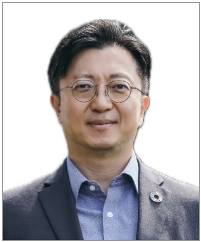Articles
- Page Path
- HOME > IGEE Proc > Volume 1(1); 2024 > Article
-
Letter
An Introduction to Yonsei University’s ‘Social Engagement Fund’ 2023 - In Han Song
-
IGEE Proc 2024;1(1):54-55.
DOI: https://doi.org/10.69841/igee.2024.006
Published online: September 30, 2024
Vice President for Student Affairs at Yonsei University
Director of the Ban Ki-moon Center for International Cooperation, Institute for Global Engagement and Empowerment at Yonsei University
© 2024 by the authors.
Submitted for possible open-access publication under the terms and conditions of the Creative Commons Attribution (CC BY) license (http://creativecommons.org/licenses/by/4.0/).
- 809 Views
- 15 Download

- All teams underwent a rigorous evaluation process. The following papers highlight the exceptional work of our finalists:
- 1. Revitalization and Awareness of Domestic and International Food Upcycling Industries
- Authors: MinJoo Kim, JiHyun Choi
- Department: Department of Food and Nutrition, Department of Food and Nutrition & Biotechnology
- This study advanced the promotion of food upcycling, contributing to a more sustainable food system and addressing SDG 12: Responsible Consumption and Production. Their market analysis and consumer surveys provided practical recommendations for enhancing market acceptance and government support.
- 2. Effective Solution-Building to Prevent Dropouts in Korea: The Case of Q&A Diary Development
- Author: Sumin Kim
- Department: College of Educational Sciences
- This project developed the "Write Light (쓰담 플래너)" diary to support the mental wellbeing and time management skills of out-of-school youth. Her work supports SDG 4: Quality Education by helping the youth in our community make informed choices about their educational outcomes.
- 3. Empirical Study on the Usage and Promotion of Sustainable Feminine Hygiene Products
- Authors: Chaeni Park, Eunsol So
- Departments: Department of Psychology & Industrial Engineering, Department of Psychology
- This study examined the health and environmental benefits of using and promoting reusable menstrual products. By promoting sustainable hygiene practices, the team supports SDG 3: Good Health and Well-Being and SDG 6: Clean Water and Sanitation.
- 4. Mitigating the Problem of Local Extinction through Pilot Operation of the Gyeongbuk Theme City: Focusing on a Comparative Analysis Between Kawaba Village and the Bu-Ul-Gyeong Megacity
- Authors: Gaeun Seo, Yeeun Doh, Hyunbin Gwon
- Department: School of Business
- This project proposed the "Gyeongbuk Four Seasons Theme Park" as a solution to local extinction and economic decline. By integrating successful regional models, the project aimed to foster regional development and sustainability, contributing to SDG 11: Sustainable Cities and Communities.
- 5. Analysis on Coral Bleaching (Soft/Hard Coral) and Coral Ecosystem Restoration Strategies—Linkage to Sustainable Industries and Economic Valuation
- Authors: Nakyung Lim, Haemin Choi
- Department: Department of Economics, Underwood International College
- This research focused on addressing coral reef degradation through innovative approaches like biotechnology and 3D printing. Their efforts contribute to the restoration of marine ecosystems and support SDG 14: Life Below Water.
- These projects stand as exemplars of Yonsei University’s dedication to producing research with a profound societal impact, aimed at addressing some of the world’s most pressing challenges. We are honored to support these initiatives and are confident that they will continue to contribute to the advancement of societal well-being and global sustainability in the years to come.
- With pride in our students,
- In Han Song, PhD
- In Han Song serves as Vice President for Student Affairs at Yonsei University and Vice-Chair of the Institute for Global Engagement & Empowerment. As a Professor of Health & Mental Health Welfare at Yonsei University’s School of Social Welfare, his primary research focuses on SDG education and suicide/mental health prevention. In addition to these core interests, Song is committed to addressing social welfare issues and systemic inequalities. More of his works can be found in his columns in The JoongAng Ilbo, where he explores issues like social trust, support systems for vulnerable populations, and policy effectiveness.
Notable Achievements
Figure & Data
References
Citations
Citations to this article as recorded by 


 IGEE
IGEE
 PubReader
PubReader ePub Link
ePub Link Cite
Cite